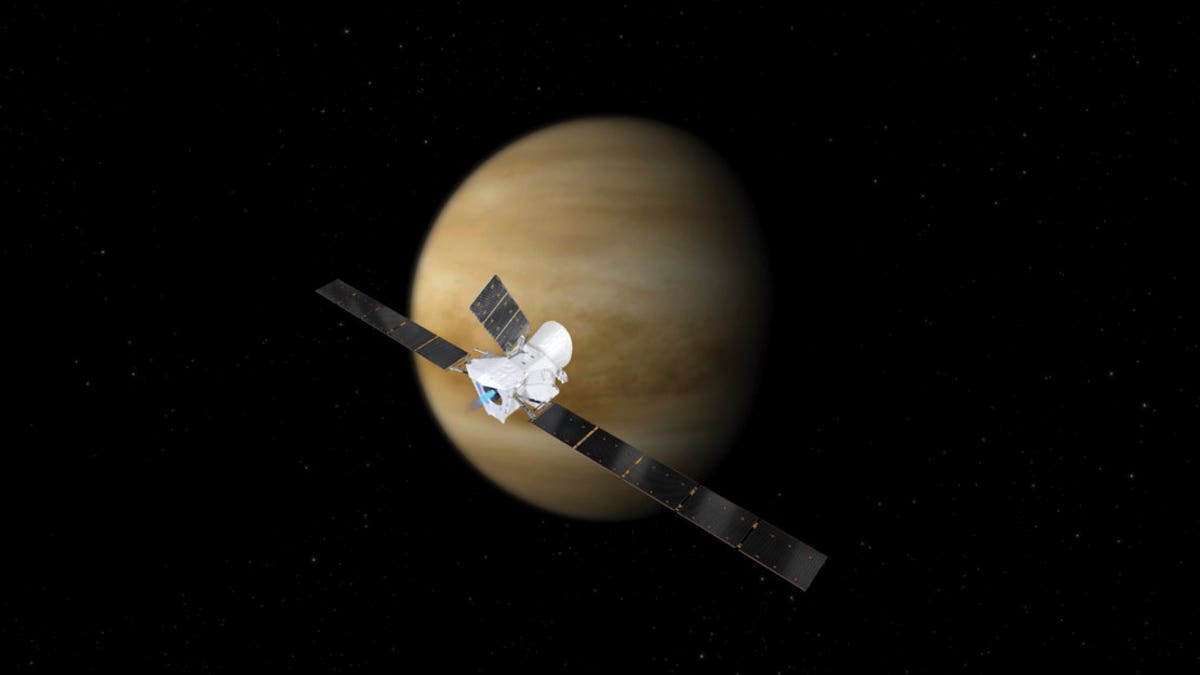Fox News Flash top headlines for Nov. 11
Fox News Flash top headlines for Nov. 11 are here. Check out what's clicking on Foxnews.com
Mercury may be in retrograde, but an even rarer celestial occurrence is occurring today will when the first planet in the Solar System passes across the Sun, an event known as Mercury Transit.
According to NASA's website, the event can be seen with proper safety equipment from 7:35 a.m. to 10:04 a.m. PST or 7:35 a.m. EST to 1: 04 p.m. EST. The next time it will occur is in 2032, but if you're in North America, the next time you can see it is in 2049.
"Because Mercury is so small from our perspective on Earth, you'll need binoculars or a telescope with a Sun filter to see it," NASA wrote on its website, adding that the event "only happens about 13 times per century."

An artist's depiction of BepiColombo during one of its two Venus flybys en route to Mercury. (ESA/ATG medialab)
MOON AND MERCURY MAY HAVE THICK DEPOSITS OF ICE, STUDY SUGGESTS
The last time Mercury passed in front of the Sun (from Earth's perspective) was 2016.
Space.com reports that Mercury will "look like a tiny, traveling blemish" on the Sun's face as it passes in front of the giant star. In order to view it, astronomers will need telescopes or binoculars fitted with protective solar filters.
These events generally occur in early May and early November, Space.com added. It's not viewable from Earth every year as each planet takes a different amount of time to orbit the Sun, so they need to be lined up in the right place at the right time for it to be viewable with proper equipment.
According to Time and Date, the event will span 5 hours, 28 minutes, 47 seconds, so people all over the U.S. will have ample time to see it. It will also be viewable in sizable parts of South America, Europe, Asia and Antarctica.
If you are not able to access safe and proper equipment, there are several ways to look at the event online, including NASA's Mercury Transit website, which will provide videos and images.
Astronomy streaming service Slooh will also have a livestream of the event on its YouTube channel, starting at 7:30 a.m. EST, Space.com added. Other options include The Virtual Telescope Project, as well as museums and planetariums around the country that are hosting live events.









































